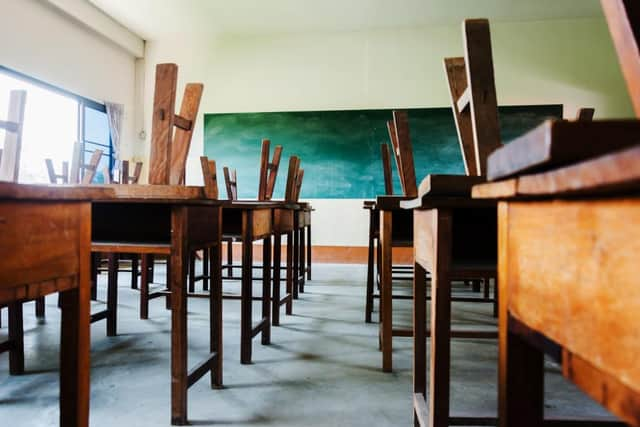What is a “vulnerable” child? Official guidance on who is classed as vulnerable amid coronavirus school closures
Speaking at a press conference on Wednesday 18 March, the Prime Minister said that all UK schools will close to staff and most pupils from Friday afternoon until further notice.
Johnson has also confirmed that nurseries and private schools would be asked to close, and exams would not take place in May and June.
Advertisement
Hide AdAdvertisement
Hide AdWhile millions of children will be asked to stay at home, there is some confusion about which children will still be attending school.


This is what the government guidance says about what constitutes a “vulnerable child” and the child of a “key worker”.
What are “vulnerable” children?
Details of what constitutes a “vulnerable” child are still vague, but according to guidance from the Department of Education, the category includes those who:
Have a social worker Have an Education, Health and Care Plan (EHCP)
Education, Health and Care Plans are legal documents that describe a child’s special educational needs and the support they require.
The Department for Education said: “Children who do not fall into these groups should remain at home with appropriate care.
Where schools are unable to look after these children, local authorities will work with the Department for Education’s regional teams to ensure an alternative option is available in the same area,” it added.
What is a “key worker”?
Once again, the government has not yet produced an exhaustive list of jobs that it classifies as “key” to the economy, but said that examples include “NHS staff, police and supermarket delivery drivers who need to be able to go to work to support the country’s fight to tackle coronavirus.”
Advertisement
Hide AdAdvertisement
Hide AdIn addition to those examples, parents with the following professions are reported to have been asked to keep sending their children to schools.
National Health Service Armed forces Teachers and childcare staff Care home workers Social workers Police officers, community support, civilian staff Prison officer or other probation staff Firefighters Local authority planners Environmental health officers Highway Agency traffic officersCoronavirus: the facts
What is coronavirus?
COVID-19 is a respiratory illness that can affect lungs and airways. It is caused by a virus called coronavirus.
What caused coronavirus?
The outbreak started in Wuhan in China in December 2019 and it is thought that the virus, like others of its kind, has come from animals.
How is it spread?
As this is such a new illness, experts still aren’t sure how it is spread. But.similar viruses are spread in cough droplets. Therefore covering your nose and mouth when sneezing and coughing, and disposing of used tissues straight away is advised. Viruses like coronavirus cannot live outside the body for very long.
What are the symptoms?
The NHS states that the symptoms are: a dry cough, high temperature and shortness of breath - but these symptoms do not necessarily mean you have the illness. Look out for flu-like symptoms, such as aches and pains, nasal congestion, runny nose and a sore throat. It’s important to remember that some people may become infected but won’t develop any symptoms or feel unwell.
What precautions can be taken?
Washing your hands with soap and water thoroughly. The NHS also advises to cover your mouth and nose with a tissue or your sleeve (not your hands) when you cough or sneeze; put used tissues in the bin immediately and try to avoid close contact with people who are unwell. Also avoiding touching eyes, nose and mouth unless your hands are clean.
What should I do if I feel unwell?
Don’t go to your GP but instead call NHS 111 or look online at the coronavirus service that can tell you if you need medical help and what to do next.
When to call NHS 111
Advertisement
Hide AdAdvertisement
Hide AdNHS 111 should be used if you feel unwell with coronavirus symptoms, have been in a country with a high risk of coronavirus in the last 14 days or if you have been in close contact with someone with the virus.
Sources: World Health Organisation and NHS